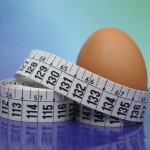What is Cholesterol?
by Jennifer Bunn, RN Cholesterol is a substance that is needed in the body in order for it to function properly. Its role is to produce hormones, vitamin D and acids used to aid your body in digesting fat. Our bodies generally produce enough cholesterol naturally, without us having to worry about whether we get enough of it from the foods we eat. In fact, many of us get too much cholesterol from our diet which can cause problems such as atherosclerosis, or hardening of the arteries, leading to heart disease. This is because excess cholesterol and fat line the arteries that supply our hearts, choking off the heart’s supply of oxygen-rich blood.
Cholesterol is a substance that is needed in the body in order for it to function properly. Its role is to produce hormones, vitamin D and acids used to aid your body in digesting fat. Our bodies generally produce enough cholesterol naturally, without us having to worry about whether we get enough of it from the foods we eat. In fact, many of us get too much cholesterol from our diet which can cause problems such as atherosclerosis, or hardening of the arteries, leading to heart disease. This is because excess cholesterol and fat line the arteries that supply our hearts, choking off the heart’s supply of oxygen-rich blood.
Perhaps you have heard the terms “good” and “bad” applied to cholesterol. LDL (low density lipoproteins) are proteins that carry the bulk of the cholesterol in the blood, so having too high a level of LDL means that your risk of developing heart disease may be higher. HDL, or high density lipoproteins, carry cholesterol in the body back to your liver which disposes of it; therefore, this lipoprotein is the “good” cholesterol because it helps to lower the amount of cholesterol that can build up in the arteries. You may have also heard of triglycerides. Trigycerides alone are not necessarily problematic, but some trigycerides are associated with lipoproteins that carry cholesterol, so high triglyceride levels may be a sign of a problem with cholesterol.
Many factors relate to how your body handles lipoproteins and cholesterol. Age, sex, weight, exercise, diet and heredity can all play a role in how your body metabolizes cholesterol. It is important to know your risk factors for heart disease, and managing your cholesterol and triglyceride levels can go a long way towards preventing heart disease.
